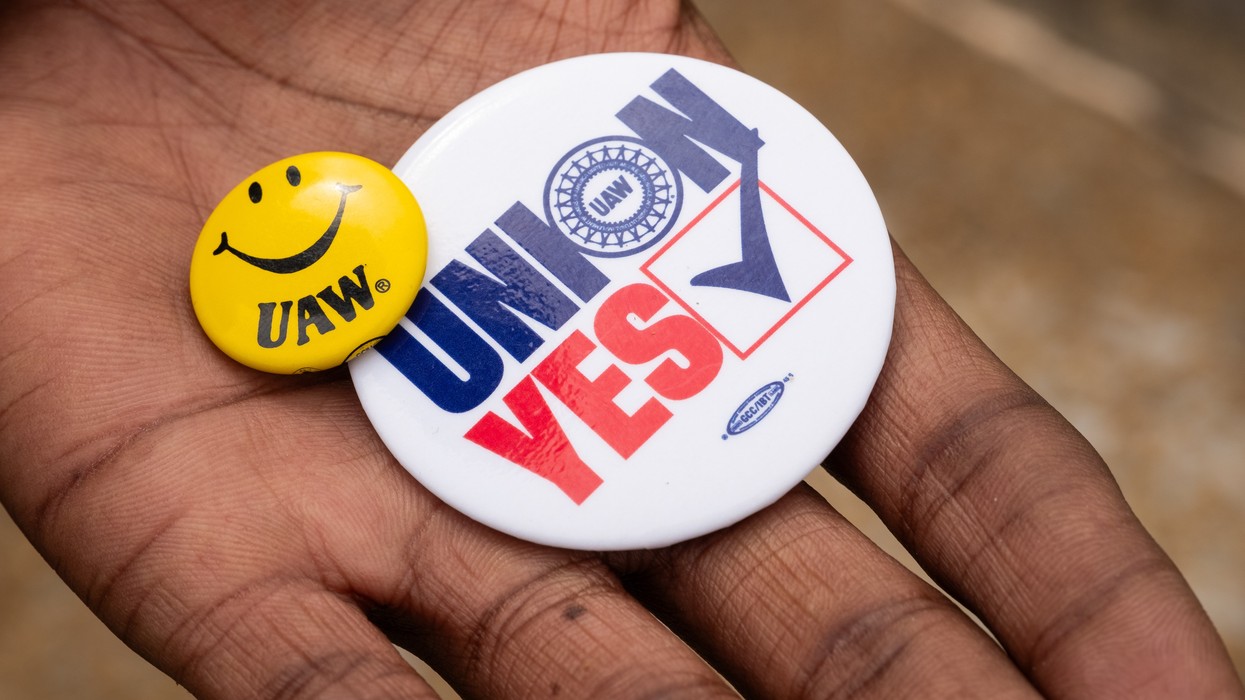March, 16 2021, 12:00am EDT

For Immediate Release
Contact:
Kristen Monsell, Center for Biological Diversity, (914) 806-3467, kmonsell@biologicaldiversity.org
Bob Shavelson, Cook Inletkeeper, (907) 299-3277, bob@inletkeeper.org
Cynthia Sarthou, Healthy Gulf, (504) 723-3547, cyn@healthygulf.org
Legal Petition Asks Biden Administration to Extend Offshore Oil Leasing Halt
Interior Secretary can issue five-year plan with no new leases.
WASHINGTON
Conservation and Native American groups petitioned the Department of the Interior today to put a five-year block on the leasing of all federal waters for offshore oil and gas development. The petition cites climate change impacts, loss of biodiversity, and threats to coastal communities as urgent reasons for action.
The request follows President Biden's Jan. 27 executive order suspending fossil fuel leasing on all federal lands and oceans, pending a review that includes a March 25 online forum. Today's petition offers a legal tool to extend that moratorium by suspending offshore lease sales for at least five years without any actions by Congress.
The petition says newly confirmed Interior Secretary Deb Haaland can issue a new five-year Outer Continental Shelf Oil and Gas Leasing Program that includes no new leases in any offshore planning region. That would contrast sharply with the Trump administration's attempt to approve a five-year program that would have expanded offshore leasing into almost all U.S. oceans, which was abandoned in the face of widespread opposition and legal setbacks.
"The Biden administration is rightly concerned about offshore drilling's threats, and a five-year halt would be a strong next step," said Kristen Monsell, oceans legal director at the Center. "The time has come to boldly address the climate crisis and protect coastal communities and wildlife. We simply can't keep issuing long-term leases to plunder our oceans. Dirty and dangerous offshore drilling needs to be phased out, starting now."
The petition notes that Congress never intended for federal offshore leasing to continue forever. It cites the legislative history of the offshore leasing program, calling offshore drilling a temporary fix until new sources of energy are available, and a federal appellate court ruling allowing leasing delays because the "true costs of tapping OCS energy resources are better understood as more becomes known about the damaging effects of fossil fuel pollutants."
"The disconnect between science and policy in Alaska is glaring," said Bob Shavelson, advocacy director with Cook Inletkeeper. "On one hand we closed our Pacific cod fishery due to climate change, and on the other hand, we're pushing for more offshore oil and gas leasing in the very same area. We need to bring science back into the discussion."
The damaging effects of fossil fuel pollutants have become clear from record-breaking global temperatures, extreme weather events becoming more frequent and severe, rising seas and coastal flooding, ocean warming and acidification, and degraded habitat, including the loss of Arctic sea ice relied on by polar bears and other endangered species.
"It's time to begin our transition to renewable energy in a thoughtful and just way," said Cynthia Sarthou, executive director of Healthy Gulf. "Existing leases will support oil and gas production in the Gulf for decades to come. We need to start the transition somewhere, and we think this is an important step."
Peer-reviewed science estimates that a nationwide federal fossil fuel leasing ban would reduce carbon emissions by 280 million tons per year, ranking it among the most ambitious federal climate-policy proposals in recent years.
"We need to see the end of fossil fuel extraction and development in the outer continental shelf," said Mati Waiya, executive director of Wishtoyo Chumash Foundation. "These practices have and continue to irreparably damage marine ecosystems and cultural fisheries. Indigenous communities are hit the hardest by the devastating consequences of climate change. Not only are our villages and cultural sites threatened by increasingly frequent environmental disasters, extreme weather events, and sea-level rise, but our lifeways, cultural keystone species and medicines are threatened with extinction by anthropogenic caused climate change. Too long have the Indigenous peoples of California had their culture and lifeways threatened by the aggressively colonialist fossil fuels industry."
The petition was filed by the Center for Biological Diversity, Cook Inletkeeper, Healthy Gulf and Wishtoyo Chumash Foundation.
At the Center for Biological Diversity, we believe that the welfare of human beings is deeply linked to nature — to the existence in our world of a vast diversity of wild animals and plants. Because diversity has intrinsic value, and because its loss impoverishes society, we work to secure a future for all species, great and small, hovering on the brink of extinction. We do so through science, law and creative media, with a focus on protecting the lands, waters and climate that species need to survive.
(520) 623-5252LATEST NEWS
'My Child Is Human': Palestinian American Mother Disrupts Austin Testimony
"Secretary Austin, why are you denying Israel's genocide in Gaza?" advocates asked the defense secretary at a hearing.
Apr 17, 2024
A week after Defense Secretary Lloyd Austin told lawmakers that the U.S. has no "evidence of genocide being created" in Gaza, peace activists disrupted the Pentagon chief's testimony on the Biden administration's 2025 budget request and demanded he acknowledge the humanity of Palestinian children.
"My child is human!" said Nasbeebah Hajjaj, a Palestinian-American woman who held up her 16-month-old son, Hamza. "Stop killing Palestinian children!"
The anti-war group CodePink said Hajjaj immigrated to the U.S. with her family when she was two months old, and has lost approximately 20 family members to Israel's bombardment of Gaza since October.
The group targeted Austin's testimony a month after the Biden administration released its 2025 budget request—a proposal that includes $1.1 trillion in military-related spending. Despite growing calls from U.S. lawmakers and rights advocates, the White House has not announced conditions for military aid to Israel, which has been widely accused of human rights violations as it has assaulted Gaza and blocked humanitarian aid from reaching Palestinians.
Israel's bombardment has killed at least 33,899 Palestinians so far, and more than two dozen people have died of starvation in recent months as international experts have warned parts of northern Gaza are facing famine.
At least 13,000 children have been killed, and the United Nations reported in February that 70% of those killed overall have been women and children—even as Israel and the U.S. have insisted Israeli forces are targeting Hamas.
The International Court of Justice issued a preliminary ruling in January saying Israel is "plausibly" committing genocide in Gaza, and lawmakers including Sen. Elizabeth Warren (D-Mass.) have expressed support for the ruling—but the U.S. has dismissed the court's findings, including at Austin's hearing last week.
While Hajjaj held up her son at Wednesday's hearing, another protester, identified by CodePink as Helen, addressed the defense secretary.
"Secretary Austin, why are you denying Israel's genocide in Gaza? Why are you denying genocide in Gaza?" said Helen, who was arrested after being led out of the hearing. "The whole world sees it! You know the laws of war! You know you have blood on your hands! You have blood on your hands! We have blood on our hands."
The advocates chanted, "Shame on you!" as they were led out of the hearing room.
Outside the hearing room, Hajjaj emphasized that the Biden administration has "the power to stop" Israel's attacks on Gaza by cutting off its military aid—of which the U.S. is the largest international supplier. The Foreign Assistance Act stipulates that the U.S. cannot provide military funding to countries that block American humanitarian aid.
"They just want to continue to arm death and destruction," said Hajjaj.
Keep ReadingShow Less
Report Sounds Alarm Over Growing Role of Big Tech in US Military-Industrial Complex
The paper's author found that the five largest military contracts to major tech firms between 2018 and 2022 "had contract ceilings totaling at least $53 billion combined."
Apr 17, 2024
The center of the U.S. military-industrial complex has been shifting over the past decade from the Washington, D.C. metropolitan area to Northern California—a shift that is accelerating with the rise of artificial intelligence-based systems, according to a report published Wednesday.
The report—entitledHow Big Tech and Silicon Valley Are Transforming the Military-Industrial Complex—was authored by Roberto J. González, a professor of cultural anthropology at San José State University, for the Costs of War Project at Brown University's Watson Institute for International & Public Affairs.
The new paper comes amid the contentious rise of AI-powered lethal autonomous weapons systems, or killer robots; increasing reliance upon AI on battlefields from Gaza to Ukraine; and growing backlash from tech workers opposed to their companies' products and services being used to commit or enable war crimes.
"Although much of the Pentagon's $886 billion budget is spent on conventional weapon systems and goes to well-established
defense giants such as Lockheed Martin, RTX, Northrop Grumman, General Dynamics, Boeing, and BAE Systems, a new political economy is emerging, driven by the imperatives of big tech companies, venture capital (VC), and private equity firms," González wrote.
"As Defense Department officials have sought to adopt AI-enabled systems and secure cloud computing services, they have awarded large multibillion-dollar contracts to Microsoft, Amazon, Google, and Oracle," he added. "At the same time, the Pentagon has increased funding for smaller defense tech startups seeking to 'disrupt' existing markets and 'move fast and break things.'"
The report highlights the rise of a new class of billion-dollar military contractors, "a combination of gargantuan tech firms like Microsoft, Amazon, and Google, and hundreds of smaller, pre-IPO startup companies supported by VC firms."
"The use of drones and AI-enabled weapons systems in Ukraine and Gaza, and a feared AI arms race with China, have fueled the
Pentagon's heavy investment in advanced digital tech," González wrote.
A lack of transparency is obscuring the true value of some of the largest military contracts to tech companies.
"One estimate indicates that U.S. military and intelligence agencies awarded at least $28 billion to Microsoft, Amazon, and Alphabet (Google's parent company) between 2018 and 2022," the report states. "The actual value of these contracts is likely much higher, because many of the largest known contracts with U.S. tech companies are classified and withheld from public procurement databases."
González found that the five largest military contracts to major tech firms between 2018 and 2022 "had contract ceilings totaling at least $53 billion combined."
"Major tech firms are also awarded large subcontracts from relatively obscure intermediaries or 'passthrough' companies that are granted primary contracts from the Pentagon—evading scrutiny and analysis," the paper adds.
González said that multi-year software-as-a-service contracts "could make the Pentagon and CIA more dependent than ever on the expertise of technical experts from the private sector."
The risk of conflicts of interest increases as military-dependent tech companies go public.
"As just one example, since going public, more than half of Palantir Technologies' revenue has come from the federal government," the report states. "Recent Palantir contracts with the U.S. Army Special Operations Command and the Air Force are worth more than $900 million. Palantir stock rose more than 170% in 2023."
There's also the danger of a "revolving door" between Silicon Valley and the Pentagon as many senior government officials "are now gravitating towards defense-related VC or private equity firms as executives or advisers after they retire from public service."
"The traditional 'revolving door' meant that a former defense official might accept an executive position with traditional weapons manufacturers; there are more lucrative options now," González wrote. "At least 50 former defense officials are working in VC and private equity, leveraging their connections with current officials or members of Congress to advance beneficial legislation for defense tech firms in their firms' investment portfolios."
"The implications are significant: The new 'revolving door' will accelerate military and intelligence agency funding for early-stage defense tech startups," the report states.
González details how "overblown, inaccurate, ideological talking points are driving defense funding for Big Tech," including "grandiose claims about the effectiveness of artificial intelligence; the overestimation of China's military and technological capabilities; the idea that America has the ability and duty to protect the world's democratic societies; and a steadfast belief that the best way to preserve U.S. dominance is through a free market that prioritizes corporate needs."
"These perspectives boost demand for military AI, and are promoted by a network of tech executives, venture capitalists, think tank analysts, academic researchers, journalists, and Pentagon leaders," he wrote.
Finally, the report warns that "aggressive Big Tech business models" can rush the development of weapons, endangering both combatants and civilians.
"Members of the armed services and civilians are in danger of being harmed by inadequately tested—or algorithmically flawed—AI-enabled technologies," the paper states. "By nature, VC firms seek rapid returns on investment by quickly bringing a product to market, and then 'cashing out' by either selling the startup or going public. This means that VC-funded defense tech companies are under pressure to produce prototypes quickly and then move to production before adequate testing has occurred."
Keep ReadingShow Less
'A Big, Big Deal': Chattanooga Volkswagen Workers Begin Voting in Key Union Election
"Looking back, you could see this being the first domino in something that changes the entire South," said one labor journalist.
Apr 17, 2024
Volkswagen workers in Chattanooga, Tennessee began voting Wednesday on whether to join the United Auto Workers, a closely watched election seen as a critical test for the emboldened union's ability to organize in the U.S. South.
The election kicked off a month after workers at the Chattanooga plant filed a petition with the National Labor Relations Board (NLRB) formally requesting an election to join the UAW, which secured record-breaking contracts at the Big Three U.S. automakers last year after a historic six-week strike.
Following the hard-fought contract victories, the UAW launched what's been described as the largest union organizing drive in modern U.S. history, targeting nonunion car manufacturers such as Tesla, Toyota, and Volkswagen.
The Chattanooga election marks the third time in a decade that the UAW has tried to organize the Volkswagen plant, which currently has around 4,300 workers. Voting concludes on Friday.
"This election is a big, big deal—probably the most important union election that this country has seen in years," labor journalist Hamilton Nolan said in a Democracy Now! appearance on Wednesday. "Looking back, you could see this being the first domino in something that changes the entire South."
About 4,000 Volkswagen workers in Tennessee are voting on whether to unionize with the United Auto Workers. Labor journalist @hamiltonnolan says it's the most important union vote in years and could be the "first domino" in a wider push to organize the auto industry in the South. pic.twitter.com/RWFnO5KznI
— Democracy Now! (@democracynow) April 17, 2024
Chattanooga workers voiced confidence that this election will be different than 2014 and 2019, when Volkswagen employees voted against joining the UAW by narrow margins.
"We're going to win," Lisa Elliott, a quality control worker at Volkswagen, toldThe Guardian's Steven Greenhouse. "We have the momentum. I know this will be a historic event."
In addition to the Chattanooga effort, the UAW is trying to organize Mercedes-Benz workers in Vance, Alabama. Earlier this month, a supermajority of Mercedes workers in Vance submitted a petition to the NLRB requesting an election to join the UAW.
UAW's organizing efforts have drawn national attention—and ire from anti-union politicians, including the Republican governors of Tennessee, Alabama, Mississippi, and other states in the U.S. South.
Joseph McCartin, a labor historian at Georgetown University, told Greenhouse that "a victory at Volkswagen would make a victory at Mercedes much more likely."
"Victories at both Volkswagen and Mercedes would be nothing less than an earthquake," McCartin added. "This would be the biggest breakthrough in private-sector organizing in decades. It would mean that the anti-union citadel [in the South] that has repulsed effort after organizing effort has been breached."
University of California, Berkeley professor Harley Shaiken echoed that assessment in an interview with The New York Times.
"It would be a revolution for the UAW and for the auto industry," Shaiken said of a UAW win. "It would break the glass ceiling for unions in the South, and would mean more purchasing power for working-class people in that region."
Keep ReadingShow Less
Most Popular


